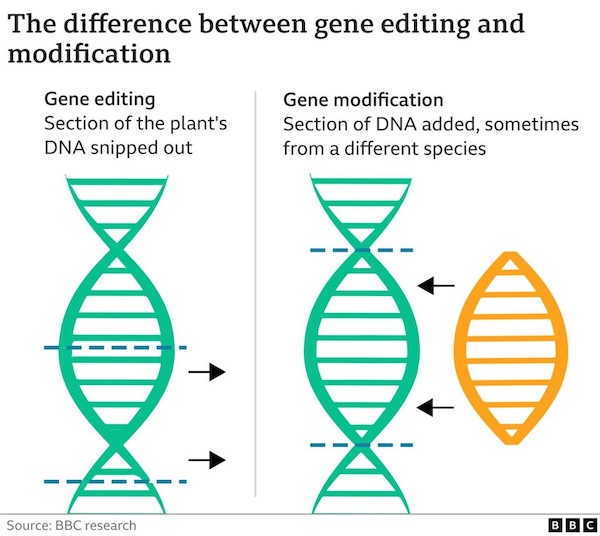Meat from genetically edited pigs may be on grocery store shelves within the next couple of years if things go according to plan for UK-based Genus PLC. The company’s pigs are engineered to resist the virus that causes porcine reproductive and respiratory syndrome (PRRS), one of the most economically devastating diseases faced by the pork industry. If approved, the pigs could become the first genetically modified animals to be bred for widespread meat consumption.
For those not familiar with the disease, PRRS is considered the most economically significant disease to affect US swine production since the eradication of classical swine fever (CSF). Also known as “blue ear,” the viral disease is characterized by abortion, premature birth, and high piglet mortality in sows, as well as pneumonia and mortality in pigs of any age. A typical, but less frequent, symptom is the occurrence of blue ears. The virus is transmitted largely through direct contact with infected pigs.
A host of drugs to treat the symptoms has been developed since PRRS was first discovered in the 1980 but there remains no cure. Some vaccines have also been developed but their effectiveness is extremely low. In the US alone, the total cost to the pork industry has been estimated at more than $650 million per year. Additionally, increased expenses associated with prevention and treatment of secondary infections have an indirect impact on the cost of production
To prevent pigs from becoming infected, researchers at Genus used CRISPR technology to edit a protein called “CD163” that the PRRS virus uses to infect its host. Pigs grown from edited fertilized eggs were found to be immune to the disease. In their paper the team noted that “generation of this founder population was not without challenges.” For example, only about 20% of pigs carried the intended gene edit.
The researchers described their methods—which have produced a healthy “founder population” of virus-resistant pigs—in a new paper published this month in the CRISPR Journal. The researchers also propose that rather than farmers editing the genes of their pigs, they instead could be allowed to purchase edited sperm cells. According to the paper, over time, as the pigs bred using edited genes grow to maturity and mate, they would pass on the edited gene, until eventually, all the pigs on a given farm would be immune to PRRS. The company says the process would likely take a few years.
Genus’s gene-edited pigs are currently working their way through the US Food and Drug Administration’s (FDA) “challenging” regulatory hoops. The agency has formally approved two genetically modified food animals – salmon from AquaAdvantage and Revivicor’s “GalSafe” pig – for human consumption. However, those were developed using different technologies that involve inserting foreign DNA.
CRISPR differs in that it is more like a high-tech form of selective breeding. With CRISPR, scientists make changes to DNA that could, in theory, occur naturally. FDA so far has approved CRISPR gene-edited animals on an investigational basis only. Their “low-risk” determination, however, is based on the fact that the introduced changes occur naturally in the animals.
Genus’s CD163 modification used to protect against PRRS could well occur naturally but has never been observed in pigs, creating higher hurdles for FDA clearance, says Clint Nesbitt, a molecular biologist who oversees regulatory affairs at Genus. As a result, he says, “We have to go through the full, complete review system at FDA. There are no shortcuts for us.”
Still, Nesbitt says Genus has made “good progress” with the agency. “There are just a couple of little submissions left that we’re still working on” before submitting a formal request for approval. To earn FDA approval, Genus must now show the altered gene is safe, able to be passed down stably through generations, and effective at providing immunity. The agency is already several years into this process for the CRISPR-edited pigs. Genus hopes the FDA will greenlight its virus-resistant pigs by the end of this year or early in 2025. (Sources: Science, Phys.org, PigProgress, Smithsonian Magazine)







